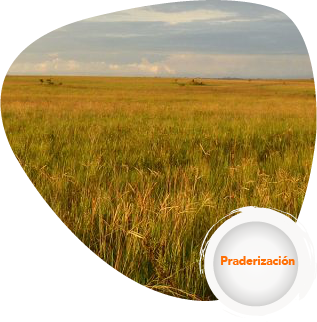SIMCOBA
El SIMCOBA es el sistema liderado por el Instituto Sinchi para realizar el seguimiento a las dinámicas de cambios espaciales y temporales de las coberturas terrestres a partir de la interpretación de imágenes de sensores remotos
De la Operación Estadística de coberturas de la tierra de la Amazonia colombiana, es importante tener en cuenta los siguientes aspectos:
1. En esta escala de trabajo, la unidad mínima cartografiable es de 25 hectáreas, exceptuando las unidades correspondientes a territorios artificializados cuya área mínima es de 5 hectáreas.
2. Debido a que el proceso de actualización de los mapas de coberturas se basa en la reinterpretación de una línea base, los cambios menores a 3 hectáreas, no se verán reflejados en el mapa actualizado.
3. La Operación Estadística se enmarca dentro del límite definido por el Instituto Amazónico de Investigaciones Científicas SINCHI el cual puede diferir de otras delimitaciones que se hagan de la región.
4. La escala de trabajo brinda un conocimiento de los recursos naturales y las formas de ocupación del territorio a nivel regional. Sin embargo, en caso de que se requiera mayor especificidad técnica, se debe trabajar con información de mayor detalle (estudios locales).
5. El porcentaje de No Respuesta es imputado del mapa de coberturas del periodo inmediatamente anterior por lo tanto, sobre estas áreas no se tiene certeza si hubo cambio o no en las coberturas de la tierra para ese periodo.
6. El porcentaje imputado del mapa de coberturas para la región, es muy bajo y por lo tanto su impacto en las estadísticas es mínimo. Sin embargo, para otras Unidades Espaciales de Referencia más detalladas, como por ejemplo municipios, el porcentaje de No Respuesta si puede tener un mayor impacto en los análisis estadísticos.
7. El Instituto SINCHI es la única entidad que genera información de las coberturas de la tierra para toda la región a escala 1:100.000 aplicando la Metodología CORINE Land Cover adaptada para Colombia. Desde otras entidades se generan distintos tipos de análisis, no necesariamente con la misma metodología y leyenda a distintas escalas y otros insumos. Por lo cual, a la fecha, no existe un referente con el cual se puedan hacer análisis de comparación de los datos de la Operación Estadística.
Se informa a los usuarios de las estadísticas de coberturas de la tierra que para el año 2022 no se identificaron coberturas nuevas respecto al periodo 2020, por lo cual se sigue contando con un total de 45 tipos de coberturas de la tierra Corine Land Cover para la Amazonia colombiana. Este mapa tuvo un Porcentaje del Área Actualizada – PAAMC del 100%, gracias a la utilización de imágenes de otros sensores como Sentinel 2 o Planet Scope que permitieron recuperar información con nubosidad del satélite Landsat8 y landsat9.
IMPORTANTE: Actualmente se encuentra publicado en datos abiertos del SIATAC el Mapa de Coberturas del 2022. El siguiente mapa de coberturas de la tierra para toda la región amazónica colombiana se realizará en 2024 y será publicado en marzo de 2025.






